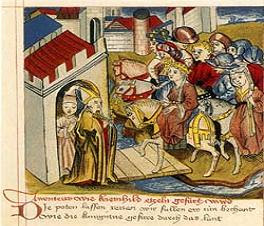 It was eerie to see Manchester United sport their usual AIG-sponsored jerseys at this week's Champions League match against Villareal. Manchester United (nickname: Red Devils) played a great draw, bore the seal of failure on their illustrious chests, and lost no irony with the fact that their club owner since 2005 is, like AIG, a debt-jockeying American.
It was eerie to see Manchester United sport their usual AIG-sponsored jerseys at this week's Champions League match against Villareal. Manchester United (nickname: Red Devils) played a great draw, bore the seal of failure on their illustrious chests, and lost no irony with the fact that their club owner since 2005 is, like AIG, a debt-jockeying American.On September 12 the New York Times printed a business column on the question, Why are American moguls investing in the English Premier League? The sad, sad answer:
Mainly because, to a surprising degree, they can act far more like old-fashioned two-fisted capitalists in England than they can in the United States. Go figure.
The financial meltdown only adds to a much-deserved reputation in the soccer world of Americans as debt-fixated. If you aren't averse to debt, what would stop you from buying up more and owning more? What can you do if you're holding a bottomless bag of gold that must be repaid? Let's look at what Adelbert von Chamisso's Peter Schlemihl did.
 My favorite story from the German romantics, Peter Schlemihls wundersame Geschichte, 1813, is a socially critical “fairy tale” and the genesis for a really awesome descriptive noun, schlemiel, which persists today in Yiddish as the word for sucker, dupe, or gull. In Chamisso's tale, Schlemihl sells his shadow to a gray man in exchange for a purse of gold that never empties. It seems like a great deal to Schlemihl until he's reviled and outcast as a shadowless freak. The gray man turns out to be the devil, who tempts Schlemihl with the return of his shadow in exchange for his soul. The only way Schlemihl can get rid of the devil is to wise up and remain a freak. He becomes a lonely researcher and tosses the purse into a ditch, thereby ridding himself of the persistent gray man. It's a great story. And I've left out so much.
My favorite story from the German romantics, Peter Schlemihls wundersame Geschichte, 1813, is a socially critical “fairy tale” and the genesis for a really awesome descriptive noun, schlemiel, which persists today in Yiddish as the word for sucker, dupe, or gull. In Chamisso's tale, Schlemihl sells his shadow to a gray man in exchange for a purse of gold that never empties. It seems like a great deal to Schlemihl until he's reviled and outcast as a shadowless freak. The gray man turns out to be the devil, who tempts Schlemihl with the return of his shadow in exchange for his soul. The only way Schlemihl can get rid of the devil is to wise up and remain a freak. He becomes a lonely researcher and tosses the purse into a ditch, thereby ridding himself of the persistent gray man. It's a great story. And I've left out so much. With all the money being poured into top-flight soccer, one wonders if fans will someday reject bottomless gold purses and pull for the small, local club instead. For that, the lower leagues and their bric-a-brac grounds are an alternative worth considering. But that's not without temptation, because teams with devilish talent like Manchester United are just so fun to watch.
With all the money being poured into top-flight soccer, one wonders if fans will someday reject bottomless gold purses and pull for the small, local club instead. For that, the lower leagues and their bric-a-brac grounds are an alternative worth considering. But that's not without temptation, because teams with devilish talent like Manchester United are just so fun to watch.










